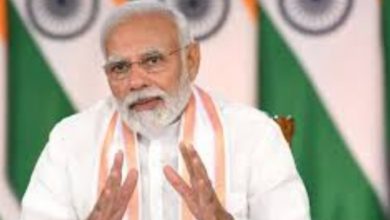Trump’s primary losses puncture his invincibility

Donald Trump had cast this year’s primaries as a moment to measure his power, endorsing candidates the dozen as he sought to maintain an imprint on his party unlike any other past president.
But after the first phase of the primary season concluded Tuesday, a month in which one-quarter of America’s states cast their ballots, the verdict has been clear: Trump’s aura of untouchability in Republican politics has been punctured.
In more than five years — from when he became president in January 2017 until May 2022 — Trump had only ever seen voters reject a half-dozen of his choices in Republican primaries. But the end of this month, that figure had more than doubled, with his biggest defeat coming Tuesday when Gov. Brian Kemp of Georgia thrashed a Trump-backed challenger more than 50 percentage points. Three other Trump recruits challenging Kemp allies also went down to defeat.Best of Express PremiumPremiumPremiumPremiumPremium
The mounting losses have emboldened Trump’s rivals inside the party to an extent not seen since early 2016 and increased the chances that, should he run again in 2024, he would face serious competition.
“I think a non-Trump with an organized campaign would have a chance,” said Jack Kingston, a former Georgia congressman who advised the first Trump presidential campaign.
Trump remains popular among Republicans and has a political war chest north of $100 million. But there has been a less visible sign of slippage: Trump’s vaunted digital fundraising machine has begun to slow. An analysis The New York Times shows that his average daily online contributions have declined every month for the last seven months that federal data is available.
Trump has gone from raising an average of $324,633 per day in September 2021 on WinRed, the Republican donation-processing portal, to $202,185 in March 2022 — even as he has ramped up his political activities and profile.
Those close to Trump — and even Republicans who aren’t — caution against misreading the significance of primary losses in which he was not on the ballot. Kemp, for instance, took pains not to say a cross word about the former president to avoid alienating his loyal base.
“To be the man, you have to beat the man,” said Jim Hobart, a Republican pollster with Public Opinion Strategies. “And until Trump either bows out of electoral politics, or is beaten a Republican at the ballot box, his strength remains.”
Rivals, including his own former vice president, Mike Pence, are gearing up for potential presidential runs, as he and others visit key early states like Iowa and ramp up their own fundraising operations. Gov. Ron DeSantis of Florida has amassed a $100 million reelection war chest and is the talk of many donors, activs and voters interested in the future of Trumpism without Trump.
“Donald Trump had four good years,” said Cole Muzio, president of the Frontline Policy Council, a conservative Chrian group based in Georgia, who voted twice for Trump but is now looking for someone more “forward-looking.”
“DeSantis is great about seeing where the left is going and playing on the field that they’re going to be on, rather than reacting to what happened a couple of years ago,” Muzio said, echoing the frustration that Trump continues to obsess about denying his 2020 election loss.
Muzio, whose organization is hosting former Secretary of State Mike Pompeo as its fall gala headliner, spoke as he waited to hear Pence this week in Kennesaw, Georgia, at a rally for Kemp — all names he included in the party’s “deep bench” of 2024 alternatives.
Trump remains the most coveted endorsement in his party, and he has boosted some big winners. Sarah Huckabee Sanders in Arkansas virtually cleared the field for governor with his support, and Rep. Ted Budd in North Carolina defeated a past governor to win his party’s Senate nomination.
Yet the difficult primary season has added to Trump’s personal anxieties about his standing, after he has sought to fashion himself as something of an old-school party boss in his post-presidency. He has told advisers he wants to declare his candidacy or possibly launch an exploratory committee this summer.
Most of Trump’s advisers believe he should wait until after the midterm elections to announce a candidacy. Yet the sense among Republicans that Trump has lost political altitude is taking hold, including among some of those close to him.
Taylor Budowich, a Trump spokesperson, said the “undeniable reality” is that Republicans rely on Trump to “fuel Republican victories in 2022 and beyond.”
“President Trump’s political operation continues to dominate American politics, raising more money and driving more victories than any other political organization — bar none,” Budowich said.
Some Republican strategs have fixated on the fact that so many of Trump’s endorsees have landed about one-third of the vote — big winners (J.D. Vance in Ohio), losers (Jody Hice in Georgia, Janice McGeachin in Idaho and Charles Herbster in Nebraska) and those headed for a recount (Dr. Mehmet Oz in Pennsylvania).
One-third of the party is at once an unmatched base of unbending loyals — and yet a cohort far from a majority.
Notably, Trump’s share of what is raised overall among all Republicans online has also declined. Trump’s main fundraising committee accounted for 19.7% of what was raised Republican campaigns and committees on WinRed in the last four months of 2021 but just 14.1% of what was raised during the first three months of 2022. Some of that decrease is the result of other candidates on the ballot raising more this year.
Still, only 10 times since July 2021 has Trump’s committee accounted for less than 10% of the money raised on WinRed during a single day — and nine of those instances came in March 2022, the last month data was available.





